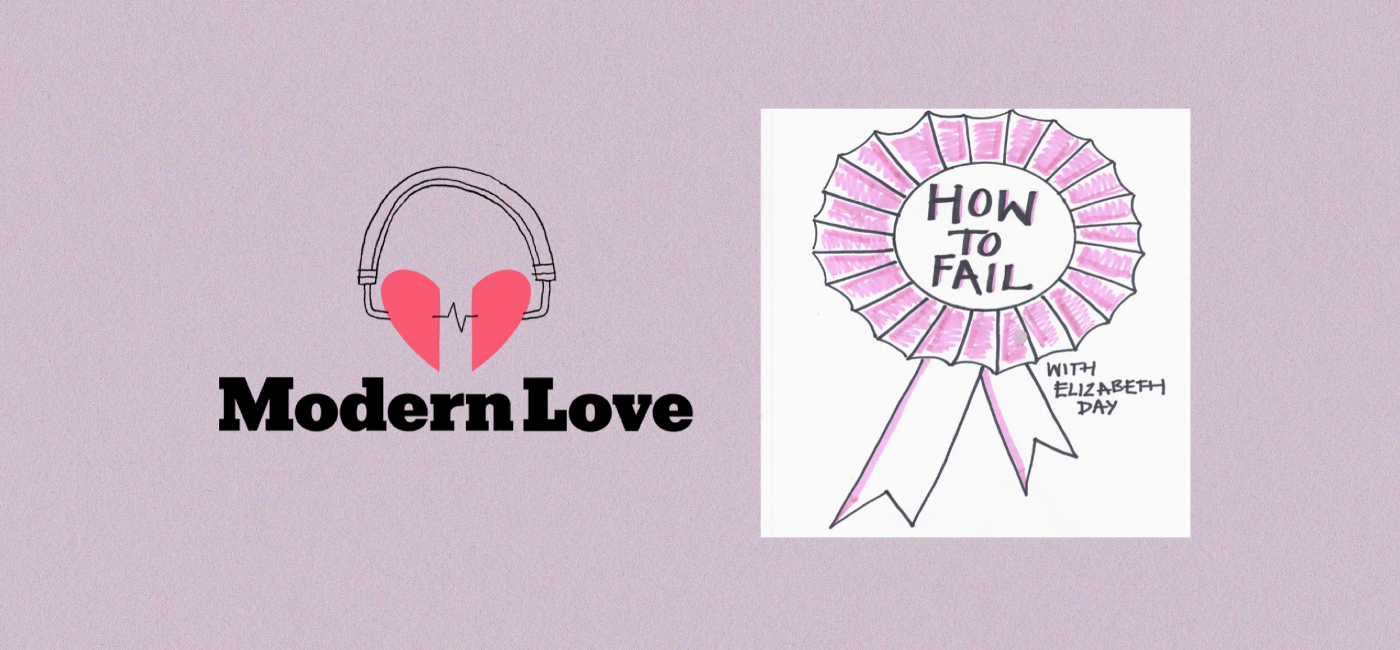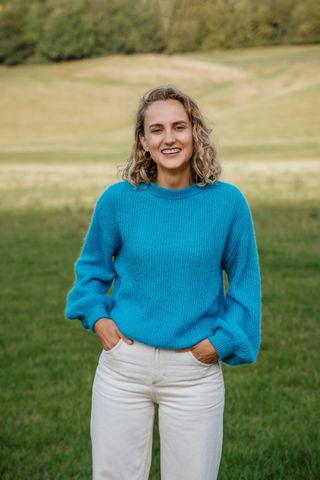If I Could Only Listen To Two Podcasts For The Rest of My Life, It’d Be These
Explore what it means to be human one episode at a time.

Have you ever heard of the theory called ‘The Lesser Minds Problem’?
It’s a concept dubbed by psychologists Schroeder, Epley and Waytz in 2010. The theory is this: because we can’t see what’s happening in other people’s heads, we have a tendency to assume that others’ minds are less complex and more superficial than our own. This is because we only have access to our own thoughts and thus can’t imagine other people deal with as many fears, doubts, insecurities as we do. This gives us a highly distorted picture of how odd we are and how normal and perfect other people must be.
We need access to people’s inner lives to see and understand how everyone else is just as flawed as we are. For me, podcasts are a powerful way to do just that. It’s like books, but with an extra layer of intimacy since you can hear the voices, the emotions, the silences, the hesitations. Two shows, in particular, have taught me a lot about people, relationships and ultimately about myself.
How To Fail With Elizabeth Day
How To Fail With Elizabeth Day is a British podcast that “celebrates the things that haven’t gone right.” Every week, Elizabeth invites someone to talk about three of their biggest failures and what these experiences taught them about how to succeed better.
It’s no secret that we don’t talk about failures enough. A podcast like this allows a glimpse into other people’s disappointments, the lessons learned, the things they would have done differently — topics that are not as freely or thoroughly discussed in regular conversations. Their hindsight, our foresight.
This podcast has made me reflect on disappointment, resilience and determination, and how most of life’s greatest opportunities come out of moments of struggle. I have been introduced to inspiring people that I started following and reading about, leading me to other interesting people, books, courses, ideas. Kicking off this online writing journey and finally daring to put myself out there without worrying what people will think can be traced back to what I’ve learned from listening to these episodes. It has even taught me more about how to have these kinds of open and genuine conversations in my own life. I’m always left feeling incredibly grateful to the guests for talking so honestly and thoughtfully about their experiences.
The lineup of guests is incredibly diverse — from writers to psychologists to scientists and actors. Chimamanda Ngozi Adichie, one of my favourite writers. Gloria Steinem, legendary American feminist journalist and activist. Malcolm Gladwell, Emeli Sande, Glennon Doyle. The list goes on.
Here are some of my favourite episodes:
S6 Ep 2: Alain de Botton
The podcast introduced me to one of my all-time favourite thinkers and writers, Alain de Botton. I remember listening while out on a walk, stopping every few metres rapidly typing on my phone, wanting to capture every single thing he said.
Alain is incredibly honest, real and insightful. He talks about failure and success in modern society, our insatiable quest for happiness, emphasizing the importance of vulnerability, sensitivity and perspective. What’s refreshing is how he ties it all back to philosophy, religion and history — without making it pompous or difficult to understand. I’ve found myself going back to this episode multiple times, learning new things every time I listen.
Our societies have become places of immense opportunity; they have also become places of immense shame and feelings of inadequacy. Because, if you tell someone that they can be anything, and they turn out to be merely ordinary — that’s a pretty crushing faith. Broadly speaking, I’d say we have a problem with ‘the ordinary’. The ordinary sounds terrible. “I have an ordinary marriage, an ordinary life, an ordinary car”. It sounds terrible. And that is odd because that is the statistical norm. What are we doing to ourselves if we equate the statistical norm, where most people are going to end up, with failure. That is an odd way of looking at it. We’ve hugely overpriviliged the peak of achievement in a few rare fields over the more everyday qualities and virtues. We need to stop generating societies that are essentially focused on the outliers.
He also talked about how to deal with media, especially relevant in times of crisis like the pandemic:
We can’t take on the sorrows of the world on our shoulders, yet that is what the modern media expects us to do. Every day we get bombarbed with messages from terrible things happening on the other side of the world. We should not close ourselves off from this but we should also avoid opening ourselves up to constant distress from people that we can’t help. Be up to date and have an understanding of what is happening in the world, but you don’t need to know every single detail every hour of the day. Focus on what is around you, on people you can help around you.
S8 Ep5: Julia Samuel
Julia Samuel, a leading British psychotherapist, talks about failing exams, failed jobs, her self-perceived failures as a mother and the impossibility of putting our emotions through a logical system.
What resonated most with me was when she spoke about impostor syndrome and fear of failure. When I heard her speak the below words, I internalised for the first time how I had been holding myself back out of fear of failure and embarrassment. Writing, for example. I have often thought about how I would’ve liked to start a blog, but I’d brush it off, saying it’s too late and I don’t have the time anyway. I now saw how I was simply doing this to avoid disappointment. It made me realise how self-sabotaging and wasteful it is. I am now much more open and vocal about what I want and care about, regardless of whether or not it will work out.
You know that within you, you have the potential to be this kind of person, to be this individual. Your fear of failure blocks you. You keep yourself small. Sometimes you don’t do stuff or you call yourself lazy, or you can’t be bothered to do something, but actually it’s fear that if you let yourself know what you really want, and you really go for it, and then you don’t get it… who will you be? What will that mean for you? So in some ways, it’s better not to go for it because then you don’t face the difficulty and pain of failure. But it’s a false protection and it does not help you. You kid yourself that you are doing fine but in fact you are not being your authentic self. You need to have the courage to be your authentic self.
S4 Ep4: Mo Gawdat
Another incredibly touching episode was with Mo Gawdat, former chief business officer for Google X, who lost his 21-year-old son during a routine operation. He talks about how he found a way to find happiness again despite the tragedy. This episode introduced me to the idea that we are not our thoughts, and not all thoughts are created equal. Mo made me think about how important it is to train our minds. After all, it’s the one tool we have with us in every single situation in our lives. I want to make it as strong and as resilient as I can.
Pain is different from suffering. Pain is “I remember him, I feel that I miss him”. Suffering is my brain telling me “You should have driven him to another hospital”. And my brain did this, by the way. But I allow my brain only two types of thoughts: one is useful thinking, and the other is joyful thinking. Anything else I say “stop Brain, behave”.
3 to 4 times a week, I go to bed at night and the only thought that comes to my head is ‘Ali died’. I feel that part of me is missing. I answer in a very simple way and say “Yes Brain, but Ali also lived”. ‘Ali died’ is a horribly painful thought. ‘Ali lived’ is the same thought but it’s a joyful thought. That’s me being the boss and taking charge of my brain. That’s me saying “If there is something we can do, we do it. If there isn’t, then don’t torture me, because there is no point in torturing me, if there is nothing I can do about it.”
Modern Love
If I could listen to only ONE podcast for the rest of my life, I would choose Modern Love.
The podcast “explores the complicated love lives of real people through conversation and storytelling, based on the weekly New York Times column.”
Each episode is a personal essay written by a real person and read on the podcast by someone else, often actors or other notable personalities. It’s not always about romantic love. It can be about relationships with friends, siblings, parents, neighbours, complete strangers, a cat even. It’s about joy and connection, about heartbreak and disappointment.
These are deeply personal stories from people all over the world, from different countries, religions and backgrounds. Stories I would have never heard about if not for this podcast. I’ve often found myself laughing out loud or with tears streaming down my face, amazed by how connected and moved I can feel listening to a stranger’s story.
This podcast has softened me. It has made me more aware that I have no idea what other people go through, and I shouldn’t be so quick to judge or assume. Instead, I’ve learned about sacrifice, forgiveness, vulnerability, shame. All those human emotions and experiences that are hard to talk about and are so freely shared in these stories.
I love every single episode, but the below three have always stood out to me.
In A Charmed Life, A Road Less Traveled
Driving to his family’s summer home in Rhode Island, Layng Martine Jr. was delayed by an awful accident. He took a back road to avoid traffic, unaware that he was passing by his wife’s car crash—a heartbreaking essay written by a man adjusting to the challenges of a new reality.
Not long after getting home from the hospital, when we were having dinner by candlelight at our kitchen table, she burst into tears. “I don’t know if I can do this for the rest of my life,” she said.
All I could say was, “We’ll do it together.”
Who is allowed to hold hands?
Narrated by Alicia Keys, this essay was written by a Jamaican woman in a same-sex relationship, talking about the privilege of being able to hold another person’s hand while walking down the street. A privilege most people don’t think twice about.
This might seem like nothing for a straight couple. But I’ve noticed that there is a strange hierarchy of handholding that dictates who gets to express physical affection without repercussions. For straight couples it’s fine, of course. For white gay couples it’s a little less fine. For black lesbians like us, it can feel like a radical act.
When Your Greatest Romance Is A Friendship
It is a story about an unusual and beautiful friendship between a young introverted writer and his elderly neighbour: it’s a reminder of how we deny ourselves potential beautiful friendships if we allow age to be a barrier.
What was perplexing, I suppose, was not that two people of such different ages had become friends, but that we had essentially become best friends. Others regarded our devotion as either strange or quaint, like one of those unlikely animal friendships: a monkey and a pigeon, perhaps.
PS: Listen to the episodes before June 24, 2020. Modern Love changed their host and format after that and it’s just not as good anymore, unfortunately.
